QuestionMy mother recently bought me 2 adorable baby mice at Petco. One died
within a few days and my mother bought me a replacement mouse, for me as
well as the other mouse. Then today Henry died and I only have the newer
mouse, percy. Both mice that died seemed to have trouble breathing and
weren't that active. We have a beautiful multiple level cage with an attached
wheel and water bottle with a small food dish in which we feed our mice every
day. We also have given them lots of bedding (non-newspaper) and cotton to
make nests. We don't know why the first two mice died and feel terrible
about it. We're also really worried that Percy will suffer the same fate. We
cleaned his cage and changed all the bedding and food, but I don't know what
else to do. . . I'm distraught!
AnswerHi Isabel,
Mice at the petstore are exposed to a very stressful environment - they're with a constantly changing group of mice, frequently handled by strangers, and eating new foods. All of this, especially coming into contact with new mice constantly, puts them at a very high risk to get sick. Frequently this doesn't show up for several days - until you get them home and settled in. By the time they start showing signs of illness it is usually already fairly serious. The only thing you can do to prevent it is make good choices when selecting mice and to isolate them when you bring them home.
When looking for new pet mice, look for big, strong, active mice. They shouldn't be skittish or jumpy, nor should they be very lethargic (keep in mind that mice are nocturnal - they may sleep in the cage, but should behave alert and responsive when disturbed). You want a mouse that is full grown, not very small, as small mice may be runted or young and can be more susceptible to diseases. The fur should be shiny, clean, and unruffled, and when you blow on it you shouldn't see any bites or spots missing fur. The face should not be missing any fur, the eyes bright and open, and the ears should perk up when exploring and should have a healthy normal color (not a pale, yellowish tint). Lastly, look at the tail - a healthy mouse's tail will be plump, whereas an underweight mouse will have a bony, thin tail. Avoid mice with injuries (unless you are able to take them to the vet and truly rehabilitate them), as these can be open doors to infections and illness.
The other thing I mentioned you could do to help is isolation - this means any new mice you bring home should be kept separate from mice you already have for at least 3 weeks. This way, you have plenty of time to observe their behavior and make certain they don't become sick. Then you don't have to worry about learning too late if they spread it to any mice you already have - because they won't have been exposed to each other yet.
It sounds like the mice that died had respiratory problems. This is probably the easiest thing to pick up at a pet store, but luckily, is fixable if you act quickly. You can pick up tetracycline at your local pet or feed store, and it's a general antibiotic you can add to the water bottle. Here's how to use it: http://en.allexperts.com/q/Mice-3824/2010/2/Tetracycline-directions-sneezing-mou... If you don't see any improvement, or if he starts to look very ill, take him to the vet if you can! Once symptoms start showing, most mouse diseases can move very quickly.
Lastly, I have some other advice on your setup that might also help. First, those all sound like male names, were they all boys? Male mice are notorious for fighting to the death, especially if the cage dynamic has changed (like when they come home from the pet store). Not all males are this aggressive, but when it shows, it can quickly become a lethal situation within a matter of hours. The reason they seem to be alright in the pet store is because they are so crowded that violence gets spread out and no one mouse gets picked on. At home, though, it becomes a different story. Boys don't need as much company anyways, they usually just prefer you! Second, the cotton wouldn't have killed them, but can get little toes tangled. For nesting material I usually use ripped up tissues and toilet paper instead. Lastly, mice eat mostly at night, so it's best to keep food in the cage at all times rather than feeding them some each day. They maintain their weight very well, and missing a meal when they need it can lower their immune system.
Hope I helped, and I hope Percy winds up okay!
-Tam

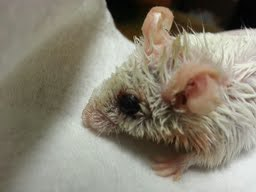 Bloody eye, bruising on mouse after stroke
QuestionNilla Beans Bad Eye
Nilla Bean
QU
Bloody eye, bruising on mouse after stroke
QuestionNilla Beans Bad Eye
Nilla Bean
QU
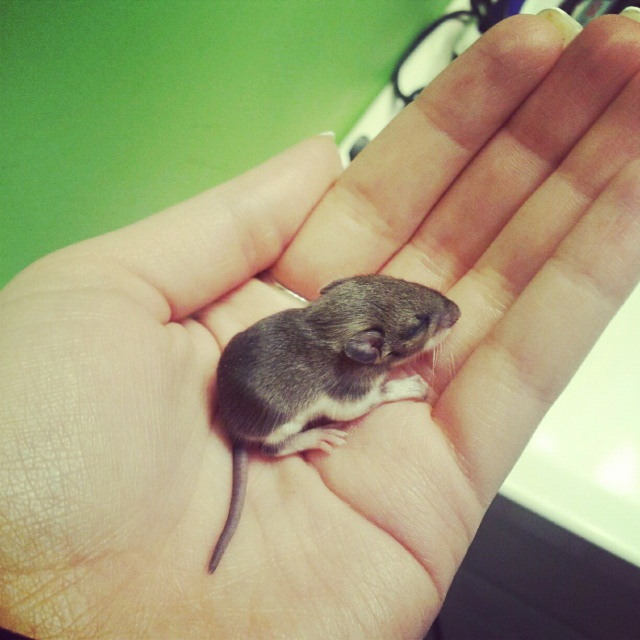 Loss of Appetite in orphan mouse
Question
Pumpkin!
My baby mouse Pumpkin was abou
Loss of Appetite in orphan mouse
Question
Pumpkin!
My baby mouse Pumpkin was abou
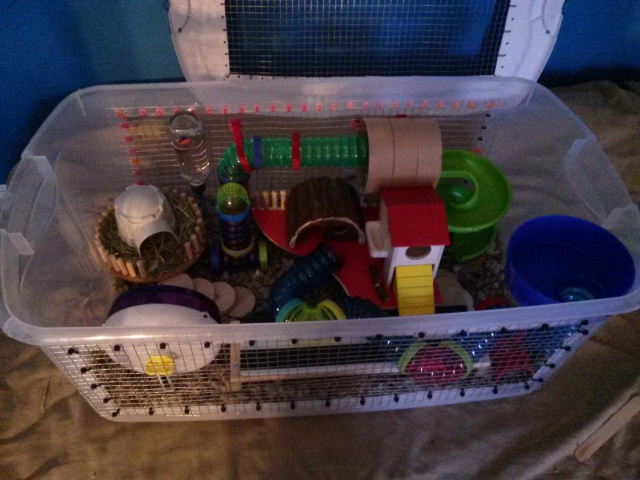 Mouse likes to Chirp
Question
Home
Hi Natasha,
I picked up an albino
Mouse likes to Chirp
Question
Home
Hi Natasha,
I picked up an albino
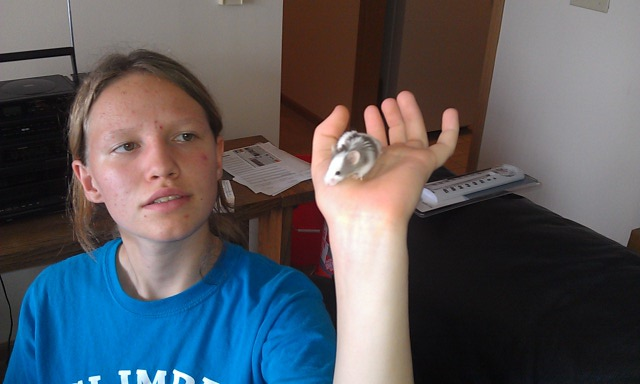 Mouse proofing a basement
QuestionNew mouse
QUESTION: Hi! Its Rachel again
Mouse proofing a basement
QuestionNew mouse
QUESTION: Hi! Its Rachel again
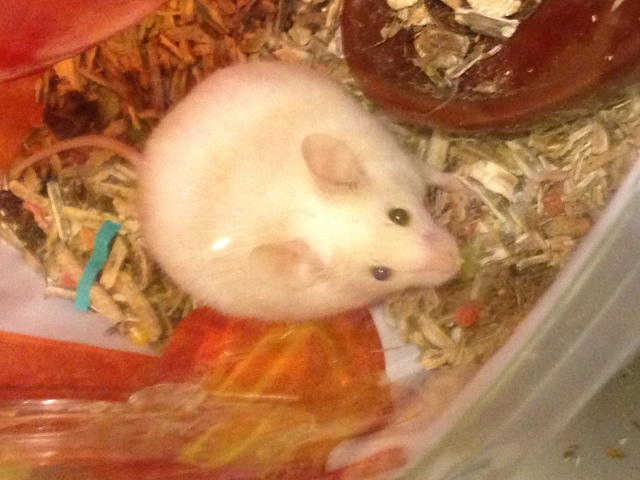 Clicker training mouse to do tricks
QuestionPoppy
QUESTION: Hey Natasha,
I have 2 qu
Clicker training mouse to do tricks
QuestionPoppy
QUESTION: Hey Natasha,
I have 2 qu